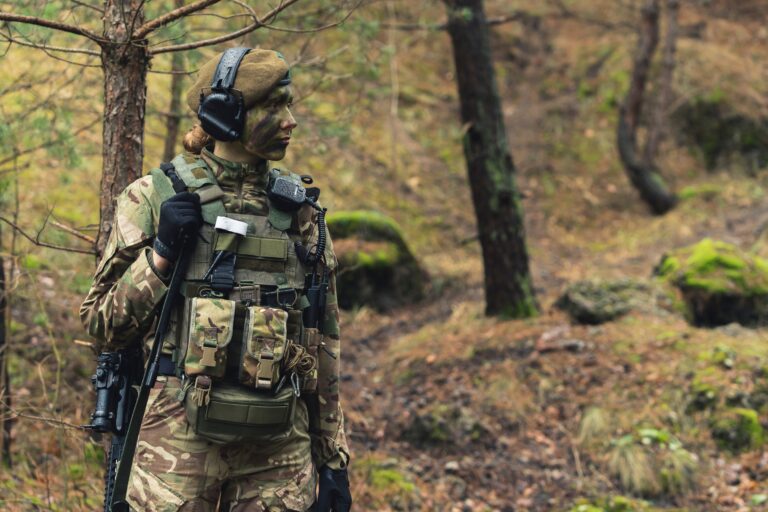Why it must be a case of “Time’s Up” For sexual harassment in the Armed Forces
There has been a somewhat unfolding National scandal in recent years revealing an alarming number of historic sexual abuse and assault cases, including those in Britain’s cadet force. Hollywood has even seen a public encouragement to name and shame those in the spotlight – actors, film directors and the like – who have committed acts of sexual assault and harassment which until recently have gone unknown. Yet sexual assault in the British Military is still happening far too frequently and being talked about far too little. But why is that the case?
Sexual assaults and sexual harassment in the Military is certainly not an issue which is hidden. As long ago as 2006, the Ministry of Defence (MoD) published a report which alarmingly indicated that 99% of female personnel in the Armed Forces had reported experiencing sexually explicit jokes, language or material of a sexual nature in the preceding year. 67% of female personnel experienced actions which could be seen to amount to sexual assault. Cases of male sexual assaults and harassment are also on the rise, with perhaps those individuals experiencing even more difficulty in reporting those assaults.
Many may think that the general ethos and culture in the Military carries an expectation that this is the norm and some may even say that this is seen as some sort of excuse for behaviour that most if not all would view as wholly unacceptable.
It looked as though action was being taken in 2008 when the UK Equal Opportunities Commission indicated that the MoD had to take action to effectively deal with sexual harassment and there was talk of the introduction of new policies and procedures to address the issues which were all too apparent.
But sadly, despite the shocking statistics it appears that little has been done. Just 3 years ago a survey was conducted of the Army, Navy and Royal Marines which revealed that 90% of those surveyed had experienced sexualised behaviour in the past year. But for some reason, despite the evidence that this is a serious issue, it isn’t gaining the same sort of attention, the same campaigning or the same media frenzy of the uncovering of serious issues with sexual harassment and assault as in other industries and one has to ask why.
One issue is most certainly with reporting such allegations to your superiors, fears of the potential repercussions and concerns about whether your complaint will be taken seriously. Often those committing the act are in a superior rank and reporting such assaults is simply not seen as an option.
General Sir Nick Carter, Chief of the General Staff has commented on the “overly sexualised culture” in the Army “in which inappropriate behaviour is deemed acceptable”. And therein lies the problem. In a culture where inappropriate sexual remarks are accepted as the norm, so perhaps are many counts of sexual harassment and in some cases even assaults which in other arenas would be deemed wholly inappropriate and require sanction. So perhaps the change in the first instance needs to be a cultural one, an undeniably difficult change to enforce.
The statistics on how many convictions are made from those cases reported are almost as alarming as the statistics highlighting the assaults themselves. A report covering a three year period from 2011 to 2014 revealed that there were more than 200 allegations of rape and sexual assault made by military personnel against their colleagues. Between 2011 and 2013, 75 rape allegations and 150 alleged sexual assaults were reported to the Military Police. But, shockingly only 5 serviceman were convicted of rape and 22 of sexual assault between October 2011 and November 2013.
And the saddening reality of the impact on the individual concerned is all too clear. Corporal Anne-Marie Ellement was found hanged at her barracks in Bulford, Wiltshire in 2011, two years after she accused two male colleagues of raping her after a night out. After she was told by her superiors there was no chance of a conviction, she allegedly became the victim of bullying by female colleagues and endured the abuse for two years. Two male soldiers were cleared of the charge at an Army Tribunal in April 2016. There has also more recently been the high profile investigations into the culture of bullying, sexual assaults and rape which were claimed to be widespread at Deepcut barracks and which sadly resulted in an investigation into the treatment of four Army recruits who were found dead at the barracks between 1995 and 2002.
As well as the stigma associated with reporting cases of sexual assault and harassment in the Armed Forces, there is also a question as to whether the Military Police are best placed to investigate and convict those involved in such acts. Historically, under the Armed Forces Act 2006, commanding Officers were legally required to report only allegations of rape and the most serious of sexual assaults to the Military Police or the Service Prosecuting Authority (SPA). It was possible for other allegations of sexual assault to be dealt with by the Chain of Command. But in 2017, after years of campaigning encouraged by the sad death of Anne-Marie Ellement, there was an important change to the law which meant that Commanding Officers in the British Armed Forces could no longer investigate soldiers’ allegations of sexual assault themselves. They are however still under no obligation to refer allegations to civilian police and it has to be questioned whether service personnel are being afforded the same degree of protection as their civilian counter-parts.
It appears that to see a reduction in the number of reported cases of sexual assault and harassment in the Armed Forces, the changes need to be threefold. There needs to be better regulation to prevent acts occurring in the first place, a better process and openness for reporting such acts when they do happen and an assurance that things will be done and sanctions given in those cases where the individual has been brave enough to come forward. Changes are unlikely to happen overnight but nonetheless, we must slowly move towards being able to say “Time’s Up” for sexual assaults and harassment in the Military.










